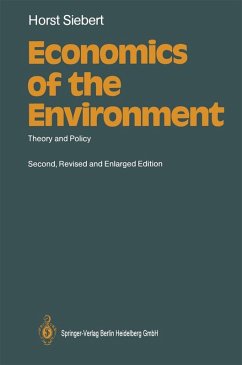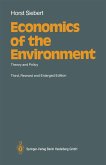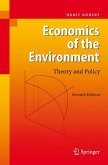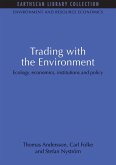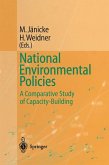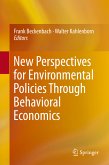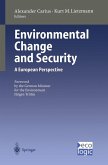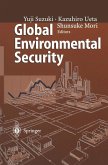"The labor of nature is paid, not because she does little. In proportion as she becomes niggardly in her gifts, she exacts a greater price for her work. Where she is munificently benefi cient, she always works gratis. " David Ricardo * This book interprets nature and the environment as a scarce resource. Whereas in the past people lived in a paradise of environmental superabundance, at present environmental goods and services are no longer in ample supply. The environ ment fulfills many functions for the economy: it serves as a public-consumption good, as a provider of natural resources, and as receptacle of wastes. These dif ferent functions compete with each other. Releasing more pollutants into the environment reduces environmental quality, and a better environmental quality implies that the environment's use as a receptacle of wastes has to be restrained. Consequently, environmental disruption and environmental use are by nature allocation problems. This is the basic message of this book. If a resources is scarce and if a zero price is charged for its use, then misal location will result. The environment as a receptacle of wastes is heavily over used, and consequently environmental quality declines. Scarcity requires a price. This book analyzes how this price should be set, whether a correct price can be established through the market mechanism, and what role the government should play. The book offers a theoretical study of the allocation problem and describes different policy approaches to the environmental problem.
Dieser Download kann aus rechtlichen Gründen nur mit Rechnungsadresse in A, B, BG, CY, CZ, D, DK, EW, E, FIN, F, GR, HR, H, IRL, I, LT, L, LR, M, NL, PL, P, R, S, SLO, SK ausgeliefert werden.

